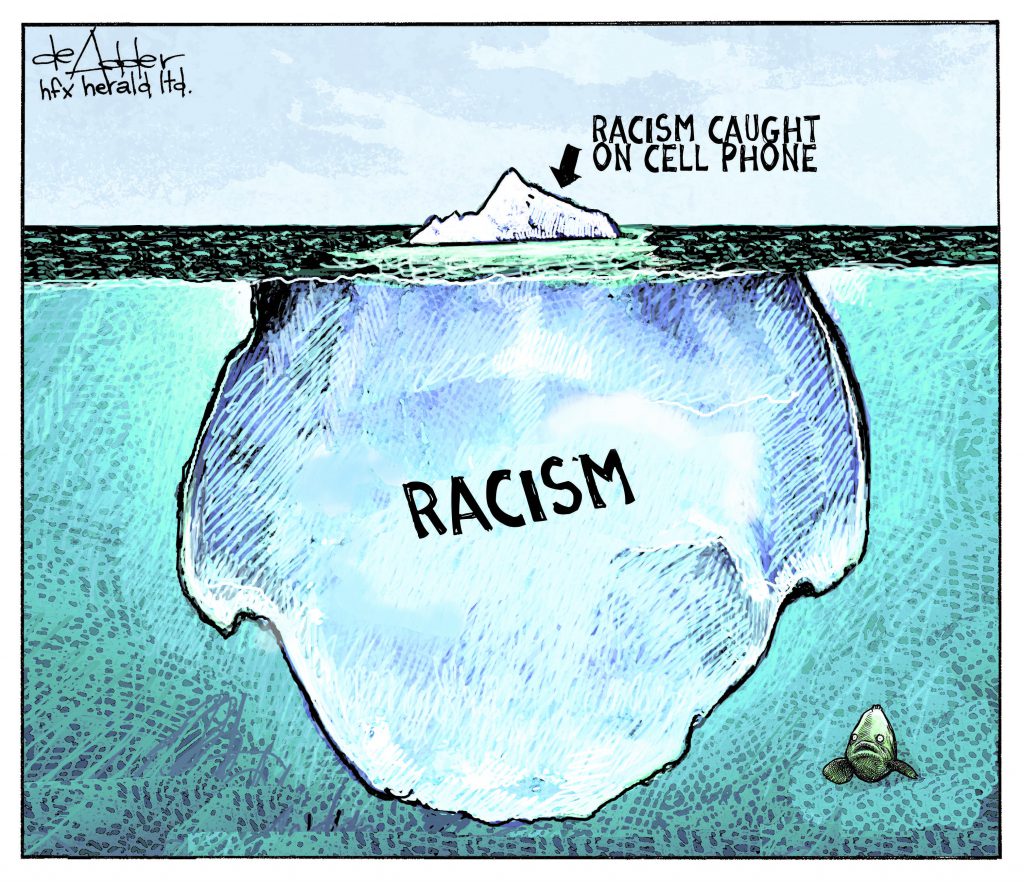Dafonte Miller’s lawyer Julian Falconer says victims of police violence are often revictimized in court:
Julian Falconer:
“Heaven help you if you decide to pursue a complaint in a matter against the police. Because you will be dragged through the coals.” …
“What’s important is people have to sense justice is done. And they are more cynical, and more skeptical about judges today than they ever were before.”
Lawyer Julian Falconer on Dafonte Miller’s fight for justice by CBC News, Jun 29, 2020
Photo of Dafonte Miller submitted as part of court evidence from the Special Investigations Unit (SIU), who were notified about the case on April 27, 2017, nearly four months after the alleged assault. (Special Investigations Unit)
Listen to the full episode 20:25 Min.
In 2016, a violent altercation with an off-duty Toronto police officer, and the officer’s brother, cost Dafonte Miller his left eye. On Friday, officer Michael Theriault was convicted of assaulting the young Black man. An Ontario Superior Court Justice acquitted Theriault and his brother of aggravated assault and obstruction of justice, but called their justification of self-defence “razor thin.” Today on Front Burner, Miller’s lawyer, Julian Falconer, shares his thoughts on the long path to that single conviction and the fight Black Canadians face to get justice for police violence.
This interview is excellent: Julian Falconer on the Michael Theriault case and the beating of Dafonte Miller 13:31 Min. by Fresh Air with Nana Aba Duncan, CBC Listen, June 27, 2020
Yesterday a white Toronto police officer was found guilty of assaulting a Black teenager in Whitby. We speak to the lawyer representing Dafonte Miller on the questions that still remain. A Black man himself, Julian Falconer speaks about the role of his work during the current Black Lives Matter movement and awareness of anti-Black racism.

Michael de Adder, a brilliant Canadian cartoonist, more of his genius here
simone_akyianu@AkyianuSimone Intersectional critical race theorist, human rights lawyer, mother | @LawMcGill & @UofT alum | tweets June 28, 2020:
The Theriault verdict & courts analysis is deeply dissatisfying from a critical race lens and here are some reasons why:
Race features at the start of the verdict
It situates the case in a racial context & the court acknowledges race to uphold Dafonte’s credibility in some brief instances – tho he was not on trial /2
But race can’t just be a forethought, it must be part of the ongoing analysis, especially when this case is really about #racism & state/ police/ structural violence /3
As a Black woman in law, I see too often the laws continued lip service to racial justice while in the same breath aligning w/ unjust outcomes & clinging to legal rhetoric – reasonableness, doubt – that discount the lived experiences of Black communities /4
With respect, judge could have said more & done more with its #race analysis, for ex., it left out the whiteness, class privilege & power wielded by two bros – w/ no discussion of why they clung to the idea of property/ private space as paramount to Black life /5
The verdicts narratives from the outset construct 19-yr old Dafonte as hood/ robber/ aggressor (almost like they did w/ #TrayvonMartin ) while leaving untouched the racialized violence the brothers felt entitled to engage /6
The failure to deconstruct the twin realities of Black trauma vis a vis the very real power & entitlement is painstakingly absent from this decision & as a white judge w/ no lived vantage point that lens may or may not ever feature more deeply /7
Also, #lawtwitter we like to say justice must be seen to be done, but no, it should actually, substantively be done ![]() I’ve lived in Canada a long time; I’ve rarely seen justice “be done” by our male dominated, white overloaded courts.
I’ve lived in Canada a long time; I’ve rarely seen justice “be done” by our male dominated, white overloaded courts.![]()
Throughout the reading of the verdict, the impact & outcome of this on Dafonte, his family & Black communities feels like a mere afterthought /8
Yes, sentencing is one avenue to do this, but the language used in this decision can/ will contextualize & broaden – or limit – the scope of remedies that may be freed up in a civil suit, human rights or in the public interest) /9
Theriault decision is yet another sad but unsurprising reminder that courts, as they stand and the law, as it is often narrowly interpreted, has not substantively ensured justice for Black, Indigenous & poor communities /10
The continued devaluing of Black life in the law’s procedural, interpretive aspects and moreso in its substantive outcomes is part of why the verdict rings hollow for so many or at least for me /11 ![]() It rings enragingly hollow to me, but nothing surprises me anymore in Canada’s dirty, white privileged, intentionally nasty and inaccessible judicial industry.
It rings enragingly hollow to me, but nothing surprises me anymore in Canada’s dirty, white privileged, intentionally nasty and inaccessible judicial industry.![]()
And, you can be decolonial, abolitionist & still be disappointed w/ this verdict, it simply affirms recent calls
In this spirit, this is an invitation for us to consider what forms of personal, familial and community accountability beyond imprisonment are possible /12

Law Society Ontario (LSO)’s white privilege bucket runneth over
How prevalent is racism (and misogyny) among Canadian lawyers & judges?
